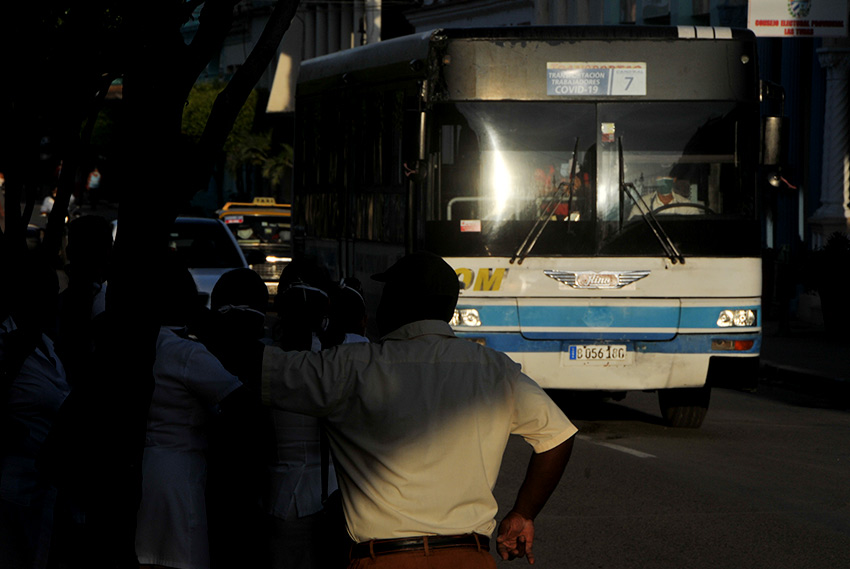
Public transport is resuming its activity in this eastern Cuban province at levels very close to those existing before the start of the COVID-19 pandemic, officials from that sector reported here.
Las Tunas, Cuba.- After the start of the first phase within the recovery of COVID-19, about 400 daily trips are made in the capital of the territory, said Luis Enrique Arias, director of the Provincial Transport Company of Passengers and General Cargo (Cardinal). The figure, he commented, is very close to that of the beginning of the year. Although the number of people transferred would be less, since to the limitations with fuel are now added the fact that only all the seats and half the capacity for standing passengers can be occupied on the buses. "Diana busses can transport only 35 people," he exemplified.
Almost all the usual routes have been restored in the Capital of Sculptures; except for numbers 3 and 8, which in July will return depending on the availability of fuel, added Arias. He also detailed that the rail busses that cover the routes to rural areas and the urban train, which does so within this city, restarted operations in the hours prior to the pandemic.
Regarding private carriers, the Cardinal headline stressed that the same limited capacity rules apply as for their state colleagues. "With them, we are in a period of changing their fuel cards, but those with assigned fuel in those in their possession can return to work,” he said. In Las Tunas, some 211 owners of motor vehicles of various sizes and more than a thousand owners of animal-drawn vehicles are licensed to operate.
Referring to interprovincial transport, Arias insisted that it is still paralyzed. It will only restart when the second phase is decreed and towards provinces that are in a similar stage, he clarified.
In this first phase, he said, the entity will continue to provide transportation services to Health workers; which, he anticipated, will gradually move to the School Transportation Company. Similarly, while some will return to their normal duties, state taxi drivers will continue to attend to the needs of health institutions, related to medical discharges, hemodialysis patients and isolation centers.




